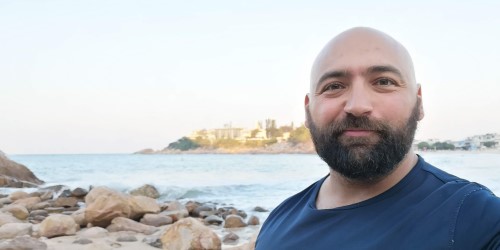Structured porous breakwaters to protect UK coastlines from the effects of climate change

Sea-level rise and more frequent and intense storms are impacting coastal communities, with coastal flooding, erosion and damage to infrastructure. Novel breakwater designs have the potential to increase the resilience of UK coastlines to these climate change related events.
The challenge
Climate change is causing more frequent and intense storms that are, and will continue, to erode and damage UK coastline infrastructure and impact coastal communities.
Immediate action is needed to protect coastlines from these extreme weather events. Solid and rubble breakwaters are widely used to diminish wave energy and protect sensitive coastal areas yet these intrusive structures disrupt natural coastal flow process, such as longshore drift that lead to significant sand dredging costs, and impede on tidal and sediment passage in salt marshes.
What we're doing
The aim of this project is to develop a design methodology and pilot test a breakwater designed using structured porous media (SPM) that can perform as a breakwater while significantly reducing harmful environmental impacts.
An interdisciplinary approach will be employed, involving the Schools of Mathematics, Geographical Sciences and Civil, Aerospace and Design Engineering.
Analytical models of micro-scale fluid mechanics around regularly spaced pores will be developed to calculate pressure losses, transmitted and reflected wave energy onto and through SPM interfaces. These models will be validated via a pilot test of an SPM-breakwater in a water flume, using local coastal wave data as inputs for wave energy.
How it helps
The key findings of this pilot study will be used to develop a larger research bid to develop optimised SPM-breakwaters with bespoke designs for specific UK coastal areas, larger scale testing in flumes and wave basins and development of flood prediction models for UK coastlines due to rising sea levels from climate change – helping to protect the UK coastline.
Investigators
- Dr Elias Arcondoulis, School of Civil, Aerospace and Design Engineering
- Professor Andrew Hogg, School of Mathematics
- Professor Richard Porter, School of Mathematics
- Dr Rory Bingham, School of Geographical Sciences
 Lead researcher profile
Lead researcher profile
Dr Elias Arcondoulis, School of Civil, Aerospace and Design Engineering.